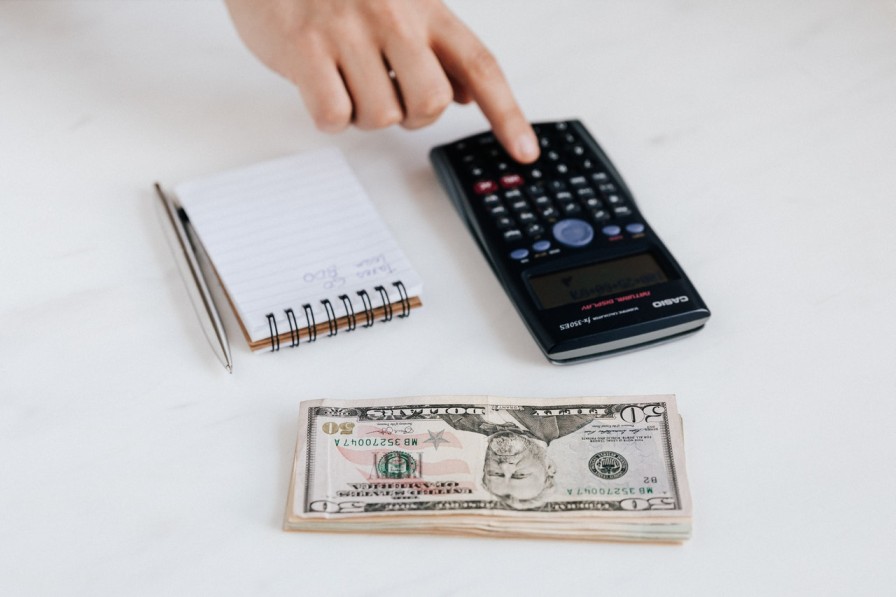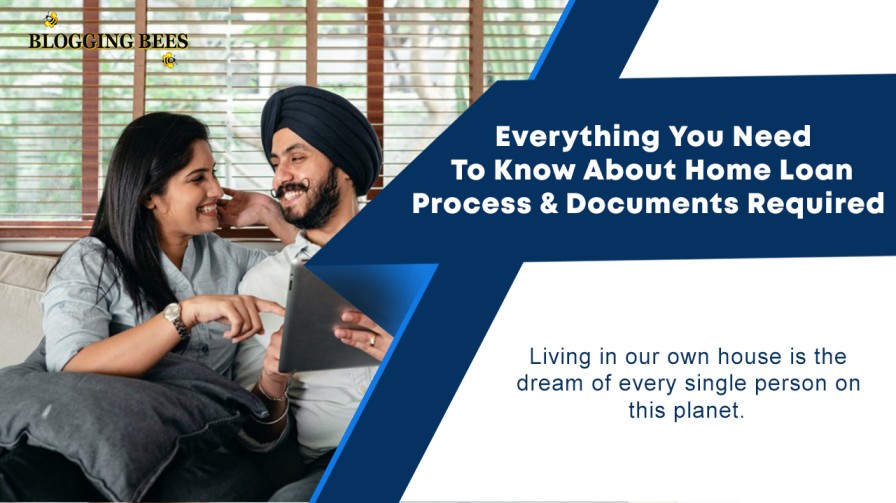“A House is a Home when your Loved Ones are around!“
Living in our own house is the dream of every single person on this planet. It often takes a lifetime for some people to buy their own home. But, I strongly believe no matter how long it takes or how big or small a house you buy there is a feeling of satisfaction, joy and completeness like you have achieved something great and I consider myself fortunate enough to share my feeling of completeness with you. In this article, I will share the process and documentation required to apply for a Home Loan and the problems I faced during this process due to lack of awareness so sit tight this is going to be a very informative as well as an interesting post for you all.
So, before we start just a quick introduction about myself I am a 25-year Accidental Engineer who lived in a rented house for around 18 years, in these 18 years I have lived in 9 different rented apartment after every few years we have to switch the apartments which was a very annoying and frustrating experience. I always used to think about when will I be able to buy my own house so I don’t have to switch apartments every few years. Finally, in 2021, I bought my first home, it is not a big fancy apartment but I can call it my own home which is cool.
It was never that easy for me to buy a home. As I belong to a middle-class family, it was necessary for me to get a home loan to buy a home. I was not aware of the home loan process thus it was a bit hectic for me. Thus I am sharing my story so that you don’t need to face the same issues. So, let’s start with my journey.
What is the eligibility criteria for Home Loan?

- Checking the Eligibility – The biggest question is “how to check your eligibility for a home loan?” In this step, you will get to know how much loan the bank or NBFC (Non-Banking Financial Corporation) is willing to sanction on your behalf. You need to provide the following documents to the Bank or NBFC:
- Form16 / ITR – You need to share your income proof & for that, you can either share Form16 or ITR (Income Tax Returns) for the last three years.
- Salary Slips – You need to submit at least 3 months of Salary Slips.
- Bank Statements – You need to submit at least 6 months of Bank Statements.
- Aadhar Card & PAN Card – Both the documents Aadhar Card & PAN Card are mandatory for Loan Application.
- Address proof (Aadhar Card / Gas Card / Passbook / Driving Licence / Election Card / Light Bill) – Submitting Address proof was the most challenging part for me here I face a lot of issues as I lived in a rented apartment for 18 years I didn’t have my current address mentioned on any of the documents & I want you all to know that Rent Agreement is not considered as Address proof for KYC purpose, the only documents considered valid for KYC purpose are Aadhar Card / Gas Card / Passbook / Driving Licence / Election Card / Light Bill. It is hard for people living in rented house to change their address on the documents every time as they change house frequently, I guess that Banks & NBFC’s have no clue about our problems.
But you guys don’t have to worry, I have gathered a lot of information on how to update addresses quickly on your required documents so here is how I did it. I applied for a Joint Home Loan with my mother, so we needed to provide one KYC document for both of us. I created a Rent Agreement for me & my mother stating we are living at the current address. Using this document, I was easily able to change the address on my Gas Card as the subscription was on my name. So, the only options remaining for my mother’s address update documents were Aadhar Card / Passbook / Driving Licence / Election Card / Light Bill as we only had one Gas Subscription. So, I started to check which document will take the minimum time to update the address, for the Aadhar Card / Driving Licence / Election Card it was going to take more than a month. So, I was left with only one option which was a passbook. Now my mother has an account in Axis Bank they straight away rejected the application for address update stating that we don’t consider Rent Agreement as address proof for updating address. Now I was totally exhausted & frustrated as this process was taking too much time & my Home Loan Application was on hold for about 20 days. Then I heard from the Loan Executive that Co-operative banks still consider Rent Agreement as an address proof & luckily my mother had an account in a Co-operative Bank, I went there & got address updated on the Passbook with the help of Rent Agreement. Finally, I was happy as I completed the documentation for Home Loan Application.
- Banks or NBFC’s –The main difference between Banks & NBFC’s (Non-Banking Financial Services) is that Banks are registered under the RBI Banking Act, 1956, while NBFCs are registered under the Companies Act, 1956. There is not much difference in the ROI (Rate of Interest) in Banks & NBFC’s but if we consider scenarios like processing time, dedicated Customer Service & application with Low Credit Score (CIBIL Score) NBFC’s are clear winners as their main domain is providing Loans whereas for Banks Loan is just a part of their operation.
How I improved my Credit Score from 0 to 715 in one month?

- You must have heard of the term Credit Score or CIBIL Score if not no need to stress out I will tell you.
A CIBIL score is an individual’s credit score which is calculated based on his credit history like loan repayment & credit card bills repayment, the score ranges from 300-900 the higher the score the higher chances of your loan getting approved by Banks or NBFC’s. If you never took a loan in your life & never used a credit card your initial credit score will be 0 or NA which was exactly my case. Now the main question is are you eligible for a loan with a 0 credit score? & the answer to this is Yes you will get a loan but at a higher interest rate.
For Example: If your credit score is 0 or NA you will get Home Loan at a higher interest rate compared to the market rate as Banks & NBFC’s don’t know your financial history they think they are taking risks by approving your loan. For a Home Loan of an ROI of 7%, they might charge you around 10% ROI. So, I personally recommend not to apply for a Home Loan or any kind of loan if your CIBIL Score is 0.
So, what next? Don’t panic, I am here I came across a very interesting way to build your CIBIL score within a month. All you need is to create an FD (Fixed Deposit) & apply for an OD (Overdraft Account) for those who don’t know what an OD is, it is basically a loan against your own FD. Yes, you heard it right, I will try to explain you with an example, Mr Raju has a bank account in Laxmi Chit Fund, he creates an FD of Rs.40,000 on 1st Jan 2021 against which he applied for an OD the next day 2nd Jan 2021, generally around 90% of your FD amount is sanctioned as loan, so against FD of Rs. 40,000 Mr Raju will receive Rs.36,000 as a loan. Now Mr Raju made sure to pay the whole loan in the same month. What Mr Raju did was he created a positive credit history against Laxmi Chit Fund by repaying his loan before time. With an interest of just Rs.74 (Generally ROI is considered +2% of your FD rate if FD rate is 5% then ROI will be 7% for OD) on the loan amount of Rs.36,000, Mr Raju generates his CIBIL score within a month.
Your CIBIL score is updated every month against your PAN card. Hope this information will be helpful to all of you, generally, people use traditional ways to generate a Credit Score like applying for Credit Card & paying its bill on time, but it takes time whereas by taking OD against your FD you get results in one month truly tested by me.
Please note that- The above example shall strictly be taken as an example.
- Housing Documents – These are the documents that are proof that you bought the house & original copies of the documents are kept by the bank or NBFC as collateral after sanctioning your Home Loan.
- Agreement – This document is approved by the Municipal Corporation; it states the value of the House & transaction between the buyer & the seller. It contains details likethe area of the house, parking, the material used for building the house, terms & conditions applicable from buyers & sellers end, the blueprint of the housing plan, etc. This document is required for Home Loan Disbursement.
- Builders NOC – This document is issued by the seller which confirms the information of sale between buyer & seller, it is basically permission to mortgage the house. This document is required for Home Loan Disbursement.
- Receipts of Payment – Maximum 90% amount can be availed as Home Loan but for the remaining amount you need to show the transaction between buyer & seller. Receipt of Payment is issued by the seller, it basically states the date on which the amount is paid & the Check No. & is required for Home Loan Disbursement.
- Sale Deed – Sale deed is the actual transfer of ownership from the seller to the buyer. This document states that the seller has sold the house to the buyer & the buyer is now the sole owner of the house. This document is obtained after possession & getting a completion certificate for the house. This document is not required for Home Loan Disbursement.
- Demand Letter – This document consists of the account details of the seller in which Bank or NBFC is supposed to transfer money. It also states the amount to be transferred & is required during Home Loan Disbursement.
- Home Loan Disbursement – After applying for Home Loan Bank or NBFC review your application & after reviewing your application you receive a confirmation on SMS & Email about your Home Loan Status. Once your Home Loan is Approved you need to visit the Bank or NBFC with the above-mentioned documents. You also need some additional documents as below:
- MTR Receipt – It is processed in the Bank or NBFC by their team.
- Home Loan Insurance or Term Plan – The Bank or NBFC will try to force you to buy a Home Loan Insurance or Term Plan but before buying read your Approved Application if it states in the terms & condition as mandatory to buy a Home Loan Insurance or Term Plan & you don’t have active personal insurance or term plan then only go for it as it might increase your monthly EMI.
- Miscellaneous Charges for Home Loan à A rough estimate on approximate fees that have been as miscellaneous charges to apply for the whole Home Loan Process.
- Rent Agreement = Rs.1000
- Loan Processing Fee (HDFC) = Rs.5900
- MTR Receipt = Rs.6600
- Loan Disbursement = Rs.4960
The figures mentioned can be varied.
I hope this information finds you at the right time and Congratulations on Buying your Home.





Very much helpful bro…many God bless u with many more such houses…
Very good information for those who are applying for loan. Even the CIBIL improving inputs are also helpful.
Thanks Digraj
It was a lot to know about loans. Good work👍🏻
You should take part in a contest for one of the highest quality websites online.
I am going to highly recommend this website!
Very good information. Lucky me I found your blog by accident (StumbleUpon).
I have bookmarked it for later!